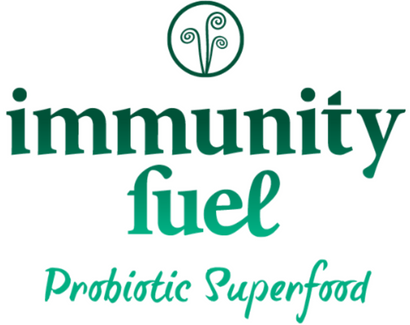Flat Rate Shipping AUS-Wide | Free Shipping Over $150 | Subscribe & Save
Flat Rate Shipping AUS-Wide | Free Shipping Over $150 | Subscribe & Save
Unlocking the Secrets of Nutrient Absorption: Maximizing Your Health Potential
October 04, 2022 3 min read

In order for nutrients to be absorbed, food must undergo a digestion process.
After food is consumed through our mouths, it is met with digestive enzymes which help break down the food into different molecules to assist our bodies functions.
For example, our protein is broken down into various amino acids, and carbohydrates are turned into glucose for energy or storage.
Once the food is broken down into the vital nutrients, it travels down to the small intestines and is absorbed into the blood stream. The circulatory system then takes over and transports the nutrients to the various parts of the body that need them. Whatever is not used is distributed to either storage or waste.
For this nutrient absorption process to work optimally, we need a healthy digestive system.
If our digestion or gut health is not good we may not absorb nutrients well. Factors such as thoroughly chewing food, good levels of hydrochloric acid, good gut bacteria and good cell integrity of the gut are important for nutrient absorption.
What affects Nutrient Absorption?
- gastrointestinal issues such as IBS and coeliac disease
- diet high in sugar and/or processed foods
- Certain medications such as antacids, blood pressure medications, antidepressants and hormone medications|
- Stress
- Alcohol Consumption
How to Boost Nutrient Absorption
1. Eat a variety of foods in one meal
To get a combination of nutrients, focus on including various in season colourful foods in your meals -- for example, a salad with roast vegetables or brown fried rice with carrot, greens, capsicum, zucchini and celery.
2. Pair vitamin C-rich foods with iron
Eat vitamin C-rich foods such as oranges, capsicums, chilli, cauliflower and brussels sprouts, with iron-rich foods (such as legumes and red meat) to increase iron absorption
3. Include healthy fats with each meal
Vitamins such as A, D, E, and K need healthy fats to efficiently absorb as they are all fat soluble.
Try using oil-based salad dressings such as flaxseed or olive oil to enhance the absorption of fat soluble vitamins from your vegetables. Adding nuts, seeds and avocados to salads and meals are also a wonderful way to enhance your nutrient absorption
4. Take a probiotic
Nourish your gut. Especially if you do have issues related to digestion, such as IBS or constipation, it's best first to get a handle on that.
You can do this by populating your gut with healthy bacteria. Immunity Fuel Probiotic Superfood is an excellent choice as it contains all 13 strains of the lactobacillus family + 2 beneficial yeast probiotc strains. It also contains the added benefit of digestive enzymes and wholefood nutrients in an easily absorbable powder.
5. Take a break from caffeine and alcohol
Alcohol and diuretics [like coffee] not only lesson the number of digestive enzymes in your system, it also damages the cell linings of the stomach and intestines, making it harder for the nutrients from digestion to enter the bloodstream.
6. Manage stress levels
Stress negatively affects digestions, The cortisol felt by the body during stress slows down digestion and food is left in the system undigested.
Try deep breathing, yoga and or meditation to bring down the stress levels.
7. Hydrate
This one important factor can make or break our digestion.When you haven't had enough fluids or water, you immediately see a difference in your stools. Our digestive system is reliant on our level of hydration as our blood cannot transport nutrients without enough water in our system.
